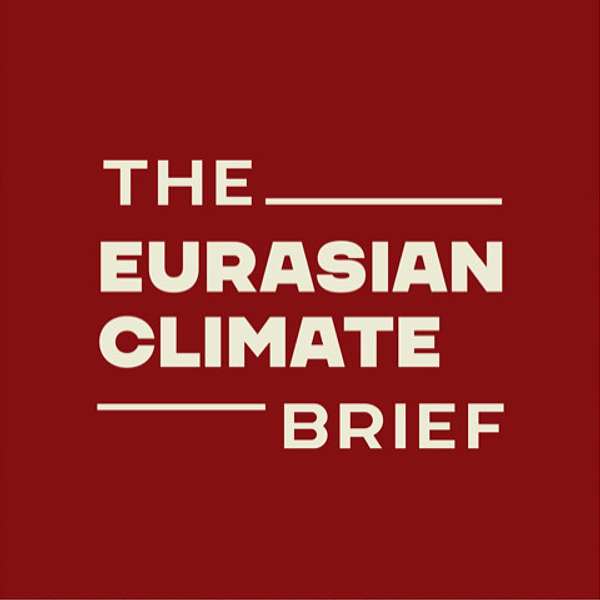
The Eurasian Climate Brief
The Eurasian Climate Brief is a podcast focusing on climate news in the region stretching from Eastern Europe, Russia down to the Caucasus and Central Asia. It aims to give a voice to the best experts and journalists, enabling them to make sense of a part of the world where environmental news is seriously underreported.
The podcast was launched in in October 2021, coinciding with COP26 in Glasgow. After a year-long hiatus, the podcast finally returns - just ahead of COP29 in Baku. Make sure to follow the show in you podcast app of choice!
The Eurasian Climate Brief
COP27 wrap-up & the power of Ukrainian climate activism
A little more than two weeks after the end of COP27, the Eurasian Climate Brief team takes stock on what the summit in Sharm El-Cheikh has achieved, and where it fell short: How significant is the deal on the ‘loss and damage’ fund, aimed at compensating developing countries for irreversible climate impacts? And what progress has made, if any, in the fight to phase out fossil fuels? Needless to say that all of this is to be read against the background of the Russian attack on Ukraine, the terrible consequences of which influenced much of this conference.
We discuss this with Svitlana Romanko, an environmental lawyer and the founder of the Ukrainian NGO Razom We Stand. Svitlana will also brief us on her powerful protests and campaigns in the past months, from calls for a total ban on Russian fossil fuels imports to confrontations with Total’s CEO and Russian delegates.
To find out more about Razom We stand, visit https://razomwestand.org/en.
The Eurasian Climate Brief is a podcast dedicated to climate issues in the region stretching from Eastern Europe to Russia down to the Caucasus and Central Asia.
This episode is supported by n-ost, The Moscow Times and the European Climate Foundation, and made by:
- Natalie Sauer, a French British environmental journalist and English-language editor for The Conversation. A former reporter for Climate Home News, her words have also appeared in international media such as Le Monde Diplomatique, Politico Europe, Open Democracy, Euractiv and the Heinrich Böll Foundation.
- Boris Schneider, European Journalism Project Manager at Clean Energy Wire (CLEW). Prior he has worked as a specialist on Eastern European climate and energy topics, amongst others for n-ost and the German Economic Team. He graduated from the Free University of Berlin with a M. Sc. in Economics and is interested in the intersection of political economy and ecology in Eurasia.
- Angelina Davydova, an environmental journalist from Russia. Angelina has been writing about climate change in the region for Russian and international media and attending UN climate summits since 2008. She also teaches environmental journalism and environmental and climate policy and communication in a number of universities and regularly organises training for journalists from Eastern Europe, Central Asia and Caucasus on environmental and climate reporting. Angelina left Russia in March 2022 and is now a fellow of the journalistic programme Media in Cooperation and Transition (MICT) in Berlin.
Production by the www.thepodcastcoach.co.uk